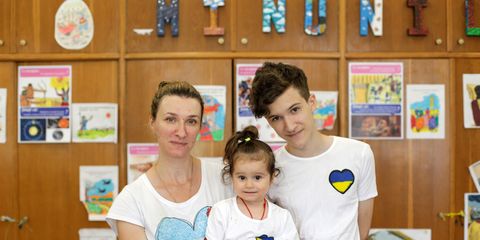Girls in the shadow of war: Ukraine’s hidden mental health crisis
Two years on from the escalation of conflict in Ukraine, Maria, Olena, Evelina and Veronica speak bravely and openly about the impact the conflict has had upon their mental health.
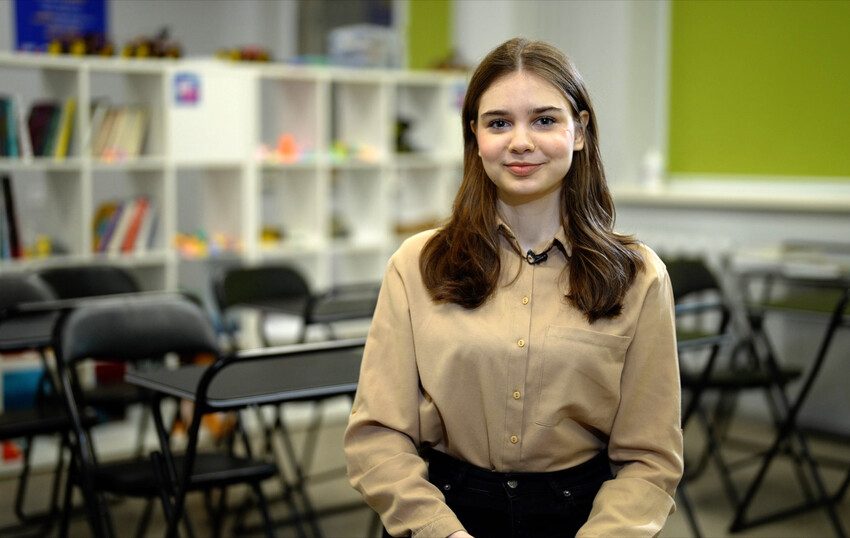
Two years on from the escalation of conflict in Ukraine, the war is having a profound impact on young people’s mental health. Four young women – Maria, Olena, Evelina and Veronica – impacted by the war in Ukraine, have spoken to us courageously and candidly about the toll conflict has taken on their mental health.
Maria
Seventeen-year-old Maria’s home city Mykolaiv was on the frontline of the war and continues to be targeted by missile attacks. “Being an adolescent right now, even when you’re 17, feels like being much older than your actual age. I feel we are adults. But we also need support sometimes as we are facing challenges and responsibilities we didn’t before.”
“Being an adolescent right now feels like being much older than your actual age. I feel we are adults.”
Maria, 17
“We need to remember that even though we’ve got used to explosions, sirens, and everything else, for children and adolescents, it’s a lot to handle. And we need to support them and highlight that they are doing really well by facing these challenges and living through them.”
“We also need more free online spaces where adolescents can speak about their problems freely and express their feelings. It’s not always a question of having highly qualified psychosocial support. Sometimes it’s just about being heard, sharing your experience, and being supported. And hearing that you are doing great with handling this, and the challenges you are facing every day.”
Olena
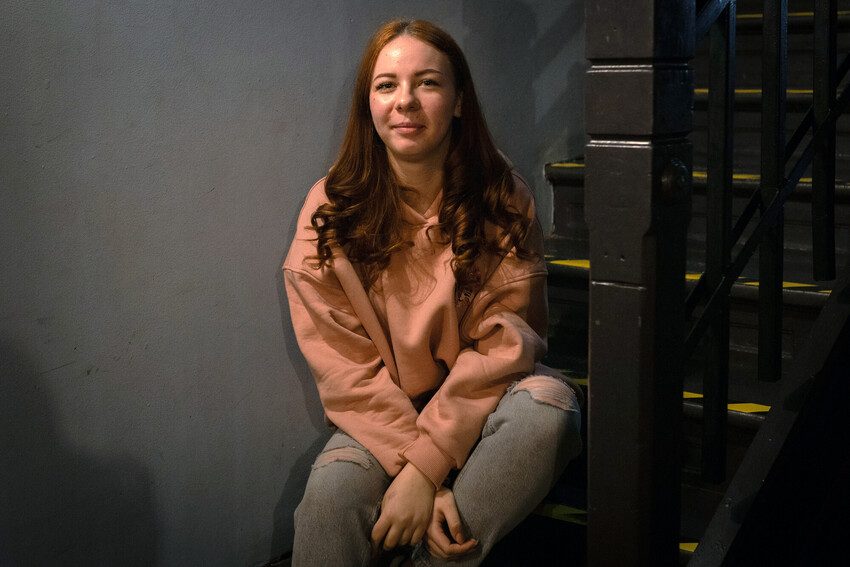
Twenty-one-year-old Olena is one of 6 million refugees from Ukraine who now live in Europe. Two years ago, Olena was a university student in Dnipro. Today, she is a refugee living in Romania. “I was a second year student at the time. I was doing my studies, I was working, I was preparing to take my exams, and it was a normal life as a student for me.”
At first, she found adjusting to life in a new country very hard but says her second year in Romania has been much easier. “I was lucky to be here with my family, I am not sure how those who are living here without anyone are coping.”
Despite the challenges she has faced, she has now completed her degree online and has also found work in a coffee shop.
“Now I work, I spend time with my friends, I go to the disco, I come to this centre, and that’s my everyday routine. At the centre, I spend time with friends and other people who share common interests with me. There are also free psychosocial support sessions, which also helps a lot.”
Evelina
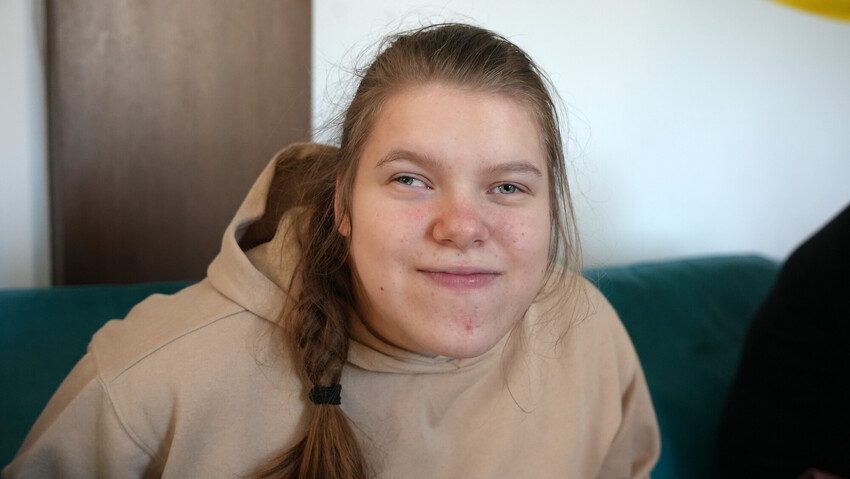
Evelina, 17, arrived in Poland on the 6th of March 2022. Living with cerebral palsy adds an additional complexity to her daily life, however she refuses to let her disability hold her back. “I’m a girl with health issues, but still have a dream. I dream of joining the police force so I can serve people. I get fed up with doing nothing – I think I have a lot of intellectual emotional power. I want this energy to contribute to the work of a policewoman.”
“I encourage girls to be brave enough and to follow their dreams.”
Evelina, 17
The conflict has taken a toll on Evelina’s mental wellbeing. “For me, it has been difficult to get used to the stress. For example, in the loud settings of everyday life, I feel scared all the time when normal people are okay. I struggle to cope with my emotions, which means I am constantly experiencing panic attacks.”
Missing her friends in Ukraine, Evelina has been able to make new friends at the Patchwork centre that she attends regularly. “I have made 2 friends since arriving in Poland.”
”I would like to say to all children, that if you want to do something, regardless of your age, ability, or gender, be brave to do so and follow your dreams. I encourage girls to be brave enough and to follow their dreams. If girls feel strength, power, and commitment, they should follow their dreams and they shouldn’t be afraid of problems.”
Veronica
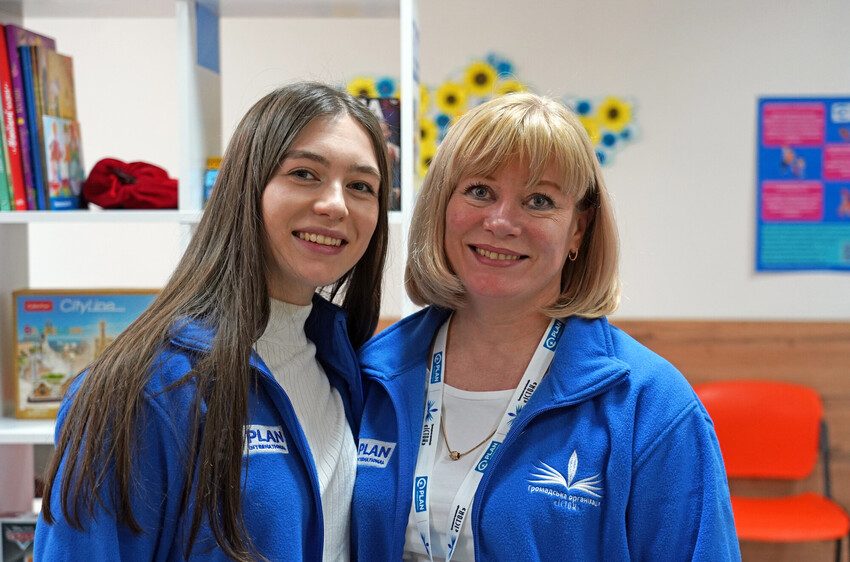
In Kyiv, we meet Veronica, 17, volunteering at a child friendly space in Kyiv.
“When I first moved, it was very hard. But now, I have met a lot of friends and cool people here and I’m able to talk with them. Now that I have friends here, it has been much easier to do new and interesting things in my life. This centre also helped me a lot because we can access psychosocial support here, including support from a counsellor.”
“We can express our feelings, and at the same time, work on our problems and develop ourselves, taking steps forward to lead a better life by solving them.”
The centre, run by Ukrainian non-governmental organisation Istok with support from Plan International offers tailored psychosocial support for children and their parents, as well as informal learning and social activities for children and adolescents.
“Now that I have friends here, it has been much easier to do new and interesting things in my life.”
Veronica, 17
Support networks
In Mykolaiv, Maria has been able to find the support she needs by attending educational activities organised by Plan International’s partner SavED which provides children with the opportunity to interact with each other face to face.
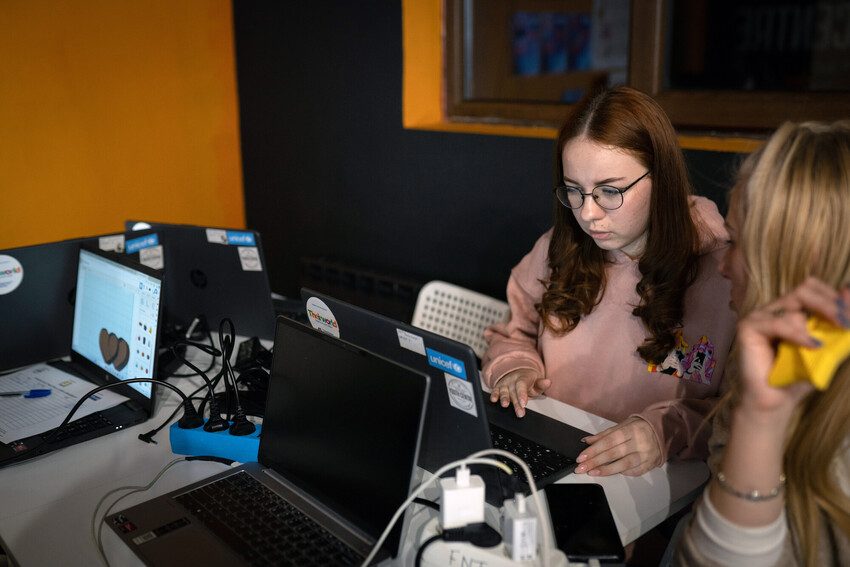
Olena has found a lifeline at a youth centre run by the National Youth Foundation, a Plan International partner organisation in Romania, where she has been able to meet other young people, attend free arts and recreational courses and receive psychosocial support.
“Sincerely, I don’t know, how could I cope with such psychological tension if we did not have this support. We meet with other people, listen to each other’s problems, and help each other. We are all growing together, by coming to this centre,” shares Olena.
For Evelina in Poland, her support network came in the form of Patchwork, a local non-governmental organisation founded by 4 Ukrainian mothers. With funding from Plan International, the organisation has expanded its support to children with disabilities from Ukraine and the local community, so they can thrive in a safe and protective environment, as well as access education and child protection services.
The mental health impacts of the war are likely to have consequences for many years to come. Across the four countries – Ukraine, Moldova, Poland and Romania, in which Plan International’s Ukraine Response is working – ensuring access to mental health and psychosocial support for children, young people and their families is a priority.
“Sometimes it’s just about being heard and hearing that you are doing great with handling this, and the challenges you are facing every day.”
Maria, 17
Emergencies, Child protection in emergencies, Migrant and displaced children
